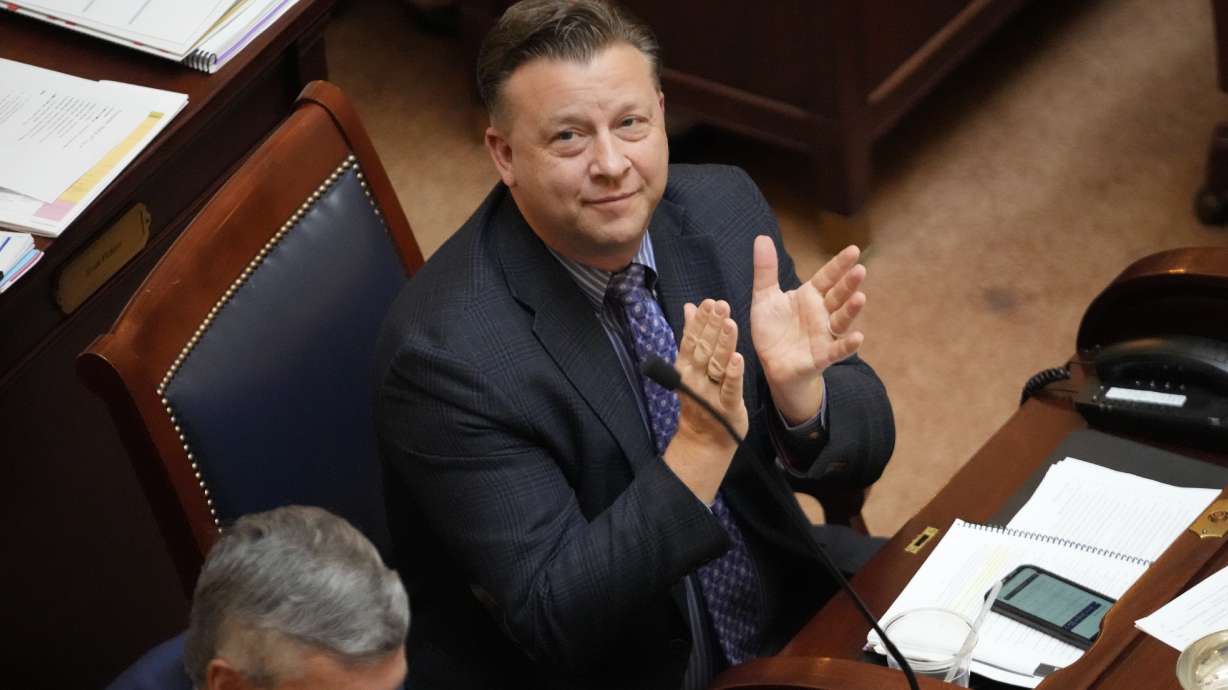Estimated read time: 3-4 minutes
This archived news story is available only for your personal, non-commercial use. Information in the story may be outdated or superseded by additional information. Reading or replaying the story in its archived form does not constitute a republication of the story.
SALT LAKE CITY — A California-based trade group representing adult entertainment companies filed a lawsuit against the state of Utah on Wednesday, calling the state's new age-verification law unconstitutional.
The Free Speech Coalition filed the lawsuit in federal court, claiming that the state was violating the First and 14th amendments of the Constitution — specifically, infringing upon the rights to free speech and privacy. The plaintiffs include the coalition, Utah-based erotica author D.S. Dawson, an anonymous adult entertainment attorney, and sexual content creators and platforms.
The new law, which went into effect on Wednesday, requires sites that have "material harmful to minors" verify users' age through a government-issued ID before allowing access to the site. The Utah State Legislature unanimously passed the bill, and Gov. Spencer Cox signed it into law earlier this year.
The purpose of the law is to try and protect children from explicit sexual content, explained the measure's sponsor, Sen. Todd Weiler, R-Woods Cross. "I'm not gonna blame all of society's ills on pornography, but I don't think it's helpful when a kid is forming their impressions of sex and gender to have all of this filth and lewd depictions on their mind."
The lawsuit comes on the heels of Pornhub blocking its content throughout the state since Monday. Anyone in Utah who tries to access Pornhub, one of the most popular adult websites, will instead see a letter and video, which state that the new law is not effective and there are other, better solutions to protecting children.
I'm not gonna blame all of society's ills on pornography, but I don't think it's helpful when a kid is forming their impressions of sex and gender to have all of this filth and lewd depictions on their mind.
–Utah state Sen. Todd Weiler
The coalition's argument in the lawsuit is similar to Pornhub's — that the new law is too vague and doesn't say how a site's material is measured to be "harmful to children" or not. Also, the complaint states, the law isn't easily enforceable. Users can get around the law using a VPN or the dark web.
Instead, the coalition suggests that parental controls and filtering software and apps can help protect children more than age verification would.
"The Utah law restricts adults' access to legal speech and violates decades of Supreme Court precedent," the coalition's executive director, Alison Boden, said in a statement. "We are fighting not only for the rights of our members and the larger adult entertainment community, but for the right of all Americans to access constitutionally protected expression in the privacy of their own home."
The complaint also claims that the state of Utah doesn't currently have a way to safely verify digital IDs online. So, site owners would be on their own to develop a platform to digitally verify government-issued IDs.
The Utah law restricts adults' access to legal speech and violates decades of Supreme Court precedent.
–Alison Boden, executive director of the Free Speech Coalition
The new age-verification law is part of a long history of legal efforts to limit children's ability to access pornography in the state. Utah was the first state to officially declare pornography a public health crisis. And Weiler connected it to the recent Utah law that requires age verification for social media platforms in order to prohibit minors from using social media from 10:30 p.m. to 6:30 a.m.
Utah is the second state to pass laws requiring age verification for access to adult entertainment websites. Louisiana passed the first last year, and state lawmakers are currently considering a follow-up measure that would fine the sites that don't comply.
Arkansas passed a similar law that will go into effect this summer, and Arizona and South Carolina lawmakers are also considering age-verification bills.









